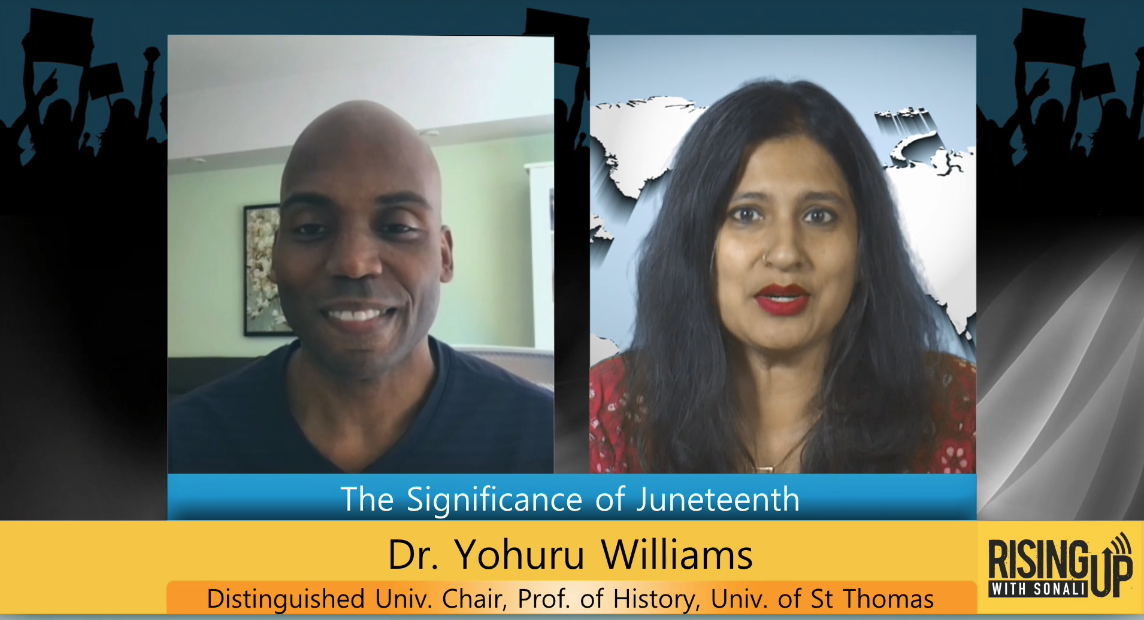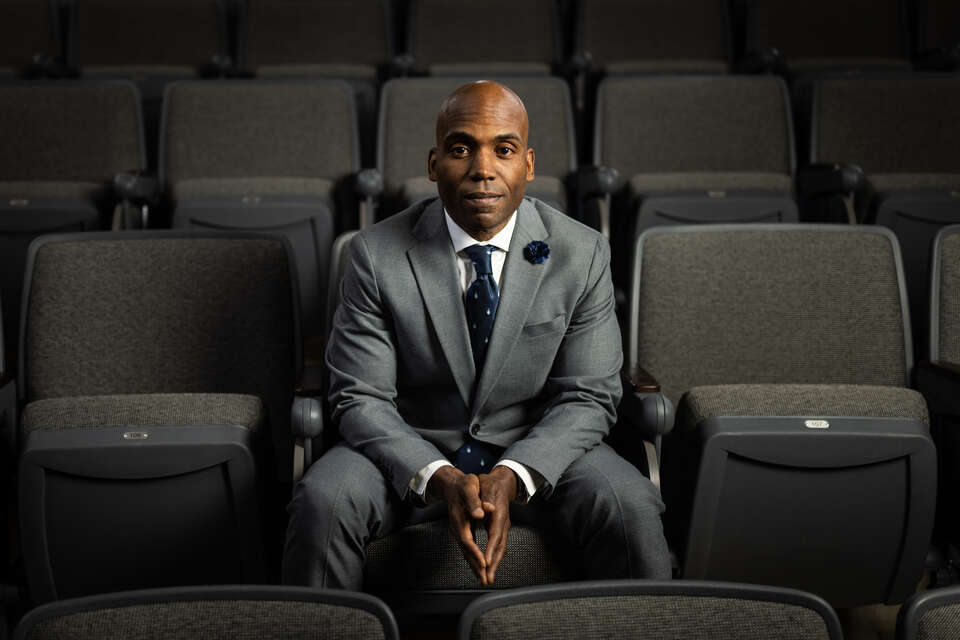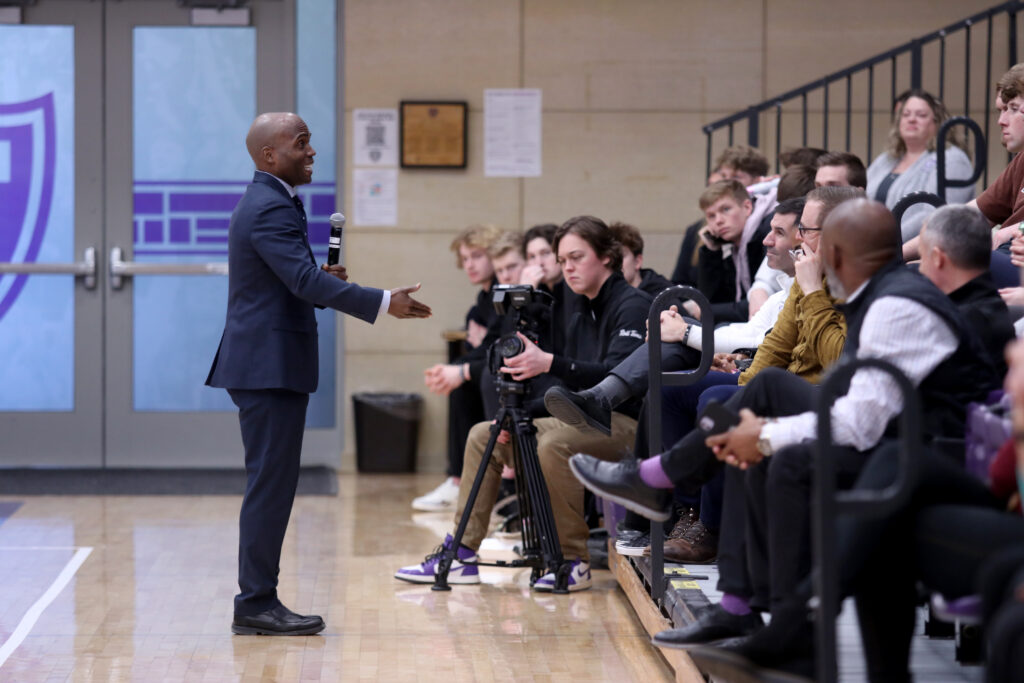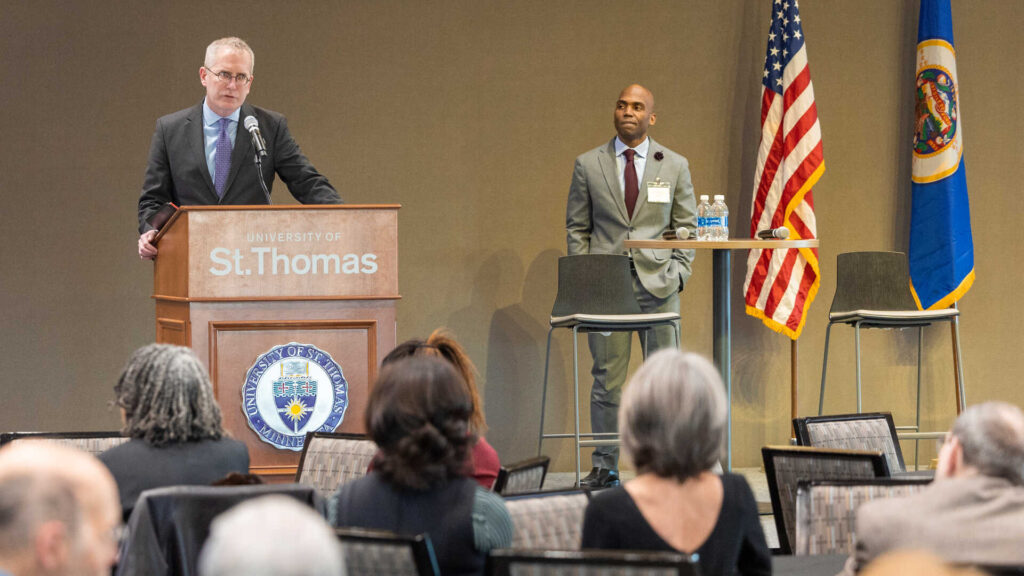To understand the history and significance of Juneteenth and what it will take to move beyond symbolism, Dr. Yohuru Williams, distinguished university chair and professor of history and founding director of the Racial Justice Initiative at the University of St. Thomas spoke with YES! Racial Justice Editor Sonali Kolhatkar.
Quotes from Dr. Williams in the article:
June 19, or Juneteenth as it’s called, is the day that slavery was officially abolished in Texas. It’s the result of [General] Gordon Granger’s field order, which basically extended the Emancipation Proclamation to Texas [in 1865]. The important thing to note about that is, often when people talk about emancipation, they talk about the end of the Civil War, and they tend to think about Lincoln’s Emancipation Proclamation ending slavery. And Lincoln issues that in January of 1863.
So now, if you celebrate both Juneteenth as Emancipation Day and then you celebrate the Fourth of July, it’s kind of completing this arc and telling the story about the paradox of American slavery and American freedom: a freedom that’s built on human bondage, on the inequality that’s imposed on, at the time of the Civil War, four and a half million African slaves.
And you’ve seen this kind of embrace of Juneteenth, particularly in the aftermath of George Floyd, that wasn’t there before – the federal holiday status is important.
There was some real concern in the African American community. And the same thing happened a few years back when there was this fight for [the] Martin Luther King Jr. holiday to commemorate the Rev. Dr. Martin Luther King Jr., that if the holiday is simply about people taking the day off, it doesn’t really commit anyone to active memory about why the holiday is significant – unlike the Fourth of July, where you’re celebrating, in some sense, the United States winning its independence from Great Britain.
What we need in our country right now is a movement for social justice that’s sustainable and longitudinal. And it can’t be about grand gestures like acknowledging Juneteenth as a holiday. It can’t be about statements that businesses and corporations put out, affirming their commitment to diversity, equity, and inclusion.
It can’t simply be about Facebook posts and social media activism. It really has to be about taking on the deeper structural challenges that continue to create inequality and promote inequality in our society as a whole. And that’s not going to be a tragedy with a happy ending. That’s going to be a lot of hard work.






